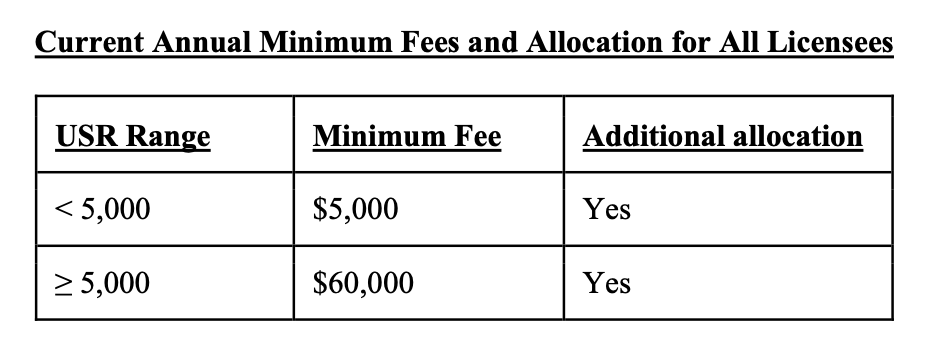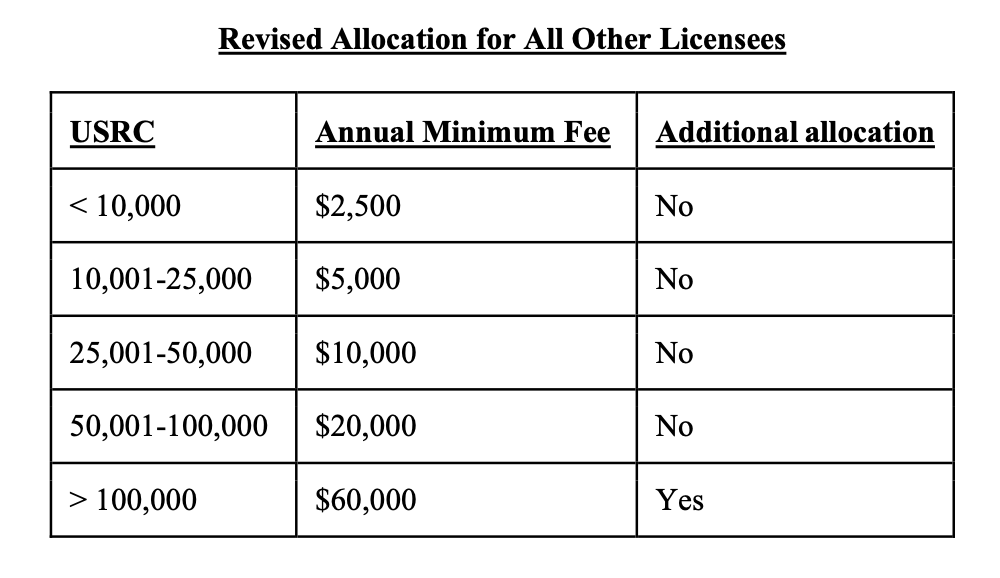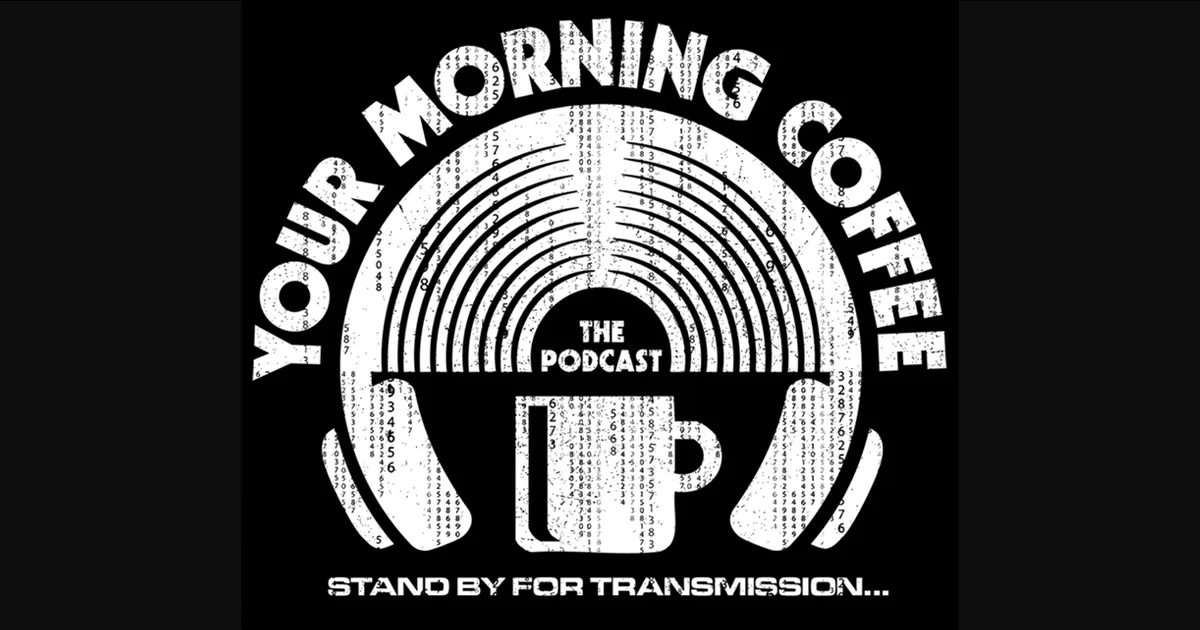In what will come as good tidings to many music tech startups out there, the Digital Licensee Coordinator is changing the structure for blanket compulsory license use.
Guest post by Chris Castle of Music Tech Solutions
Title I of the Music Modernization Act established a blanket mechanical royalty license, the mechanical licensing collective to create the musical works database and collect royalties, the Digital Licensee Coordinator (which represents the music users under the blanket license) and a system where the services pay for the millions evidently required to operate the MLC and create the musical works database (which may happen eventually but which currently is the Harry Fox Agency accused via API).
Title I also established another first (to my knowledge): The United States became the first country in the world to charge music users a fee for availing themselves of a compulsory license. The way that works is that all users of the blanket license have to bear a share of the costs of operating the MLC and eventually establishing the musical works database (and whatever else is in the MLC’s budget like legal fees, executive pension contributions, bonuses, etc.). This is called the “administrative assessment” and is established by the Copyright Royalty Judges through a hearing that only the DLC and the MLC were (and probably are) allowed to attend, yet sets the rates for music users not present.
The initial administrative assessment is divided into two parts: The startup costs for developing the HFA API and the operating costs of the MLC. The startup costs for the API, vendor payments, etc., were assessed to be $33,500,000; that’s a pricey API. The first year MLC operating costs were assessed to be $28,500,000. Because it’s always groundhog day when it comes to music publishing proceedings before the Copyright Royalty Judges, the method of allocating these costs are a mind-numbing calculation that will require lawyers to interpret. With all respect, the poor CRJs must wonder how anything ever actually happens in the music business based on the distorted view that parades before them. You do have to ask yourself is this really the best we can do? Imagine that the industry elected to solve its startup problems by single combat with one songwriter and one entrepreneur staying in a room until they made a deal. Do you think that the best they could come up with is the system of compulsory licensing as it exists in the US? Maybe. Or maybe they’d come up with something simpler and less costly to administer in the absence of experts , lobbyists and lawyers.
My feeling is that the entire administrative assessment process is fraught with conflicts of interest, a view I made known in an op-ed and to the Senate Judiciary Committee staff at their request when the MMA was being drafted. The staff actually agreed, but said their hands were tied because of “the parties”–which of course means “the lobbyists” because the MMA looked like what they call a “Two Lexus” lobbying contract. Not for songwriters, of course.
Yet, the DLC appears to have reconsidered some of this tom foolery and should be praised for doing so. The good news is that the market’s gravitational pull has caused the allocation of the assessment on startups to come back to earth in a much more realistic methodology. Markets are funny that way, even markets for compulsory licenses. While still out of step with the rest of the world, at least the US precedent appears much less likely to have the counterproductive effects that were obvious before MMA was signed into law due to the statute’s anticompetitive lock in. And the DLC should be commended for having the courage and the energy to make the fairness-making changes. That’s a wow moment.
Hats off to the DLC for getting out ahead of the issue. I recommend reading the DLC filing supporting the revisions (technically a joint filing with MLC but it reads like it came from DLC with MLC signing off). It’s clearly written and I think the narrative will be understandable and informative to a layperson (once you get past the bizarre structure of the entire thing). The DLC tells us the reasons for revisiting the allocation:
Since the Judges adopted the initial administrative assessment regulations, the Parties [i.e., the DLC and MLC since no one else was allowed to participate even if they had a stake in the outcome] have gained a better understanding of the overall usage of sound recordings within the digital audio service industry, as well as the relative usage of various categories of services. This information has led the Parties to conclude that the allocation methodology could have significant impacts on smaller Licensees, and that the allocation methodology should be modified to better accommodate these Licensees, and that such is reasonable and appropriate. This is particularly the case as these Licensees transition to the new mechanical licensing system set forth in the Music Modernization Act (“MMA”) and navigate new reporting requirements, and further as the country continues to generally struggle through the economic and health effects of the ongoing COVID-19 pandemic. While the cost, reporting requirements, and impacts of the pandemic are experienced by all Licensees, the Parties believe that it is reasonable and appropriate to modify the administrative assessment to better address the situations of smaller Licensees.
The “old” allocation resulted in this payment structure for services buying into the blanket license (setting aside download stores for the moment):

It was that $60,000 plus an indeterminate share of operating costs that was the killer. The new allocation is more precise applicable to other than download stores:

This makes a lot more sense and one can believe that some startups actually were asked what they think. Remember, David Lowery sent an open letter to the CRJs in 2019 raising this exact point reacting to the bizarre initial administrative assessment hearings:
The Judges should take into account that no startup has been present or able to negotiate the many burdens placed on them by this settlement. In particular, they have not been able to be heard by the Judges on the scope of these financial burdens that their competitors—some of the richest multinational corporations in history—have unilaterally decided to place on them with no push back.
This isn’t to say that any would be brave enough to come forward and challenge their betters if given a chance. But they should at least be given a chance.
There are some twists and turns to the new rule which was adopted by the CRJs as a final rule on January 8, 2021, and any startup should obviously get smart about the rules. But–these latest amendments have established two really great things: First, the DLC is paying attention. That is very good for the reasons David raises. The other is that the DLC is apparently actually talking to someone other than Google and Spotify and coming up with reasonable compromises. This is very, very good. Let’s hope it continues.
We’ll be watching.





